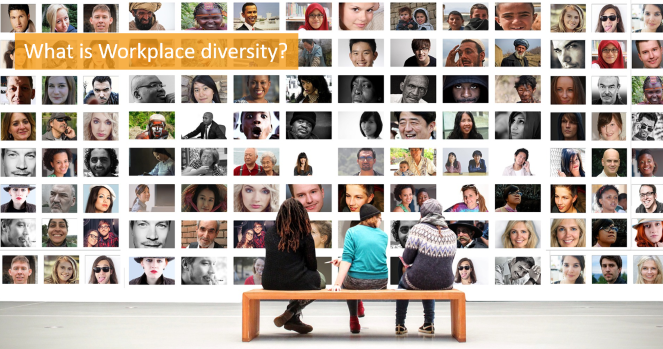What is Workplace diversity?
Workplace diversity is the term used for the workplace composed of employees with varying characteristics, such as different sex, gender, race, ethnicity, sexual orientation, etc.

Workplace diversity definition: What is workplace diversity?
Workplace diversity is the term used for the workplace composed of employees with varying characteristics, such as different sex, gender, race, ethnicity, sexual orientation, etc.
A company with workplace diversity is the company who has employees with a wide range of characteristics and experiences.
Different types of workplace diversity
There are many different types of workplace diversity. In the beginning, the term diversity was used primarily to address racial and ethnic diversity.
However, in recent years, the term workplace diversity has been expanded to encompass many different characteristics, such as:
- Race
- Ethnicity
- Gender
- Age
- Sexual orientation
- Physical abilities and disabilities
- Religion
- Political beliefs
- Education
- Socioeconomic background
- Geographical orientation
- Language
- Culture
- Military service.
Why is workplace diversity so important?
In the modern, globally connected society and market, workplace diversity is becoming a necessity rather than a banner companies wave to show their commitment to embracing differences.
Most of the modern companies can sell their products all over the world, reaching many different groups of people. In order to successfully create, present and sell their products in this global market, companies need a diversified workforce.
What are the benefits of workplace diversity?
Companies with diversified workforce experience many advantages over those who don't have diversified employees.
Workplace diversity is not just something that improves your company’s reputation. Workplace diversity also has many direct, tangible benefits.
Here are the commonly cited benefits of workplace diversity:
- Variety of different perspectives
- Increased creativity
- Increased problem-solving
- Increased profits
- Improved employee engagement
- Reduced employee turnover
- Improved company reputation
- Improved hiring results
Workplace diversity statistics
Here are the two most cited statistics related to the benefits of workplace diversity:
- According to McKinsey’s research, racially and ethnically diverse companies outperform industry norms by 35%
- According to a survey conducted by Glassdoor, 67% of job seekers said a diverse workforce is important when considering job offers and 57% of employees think their companies should be more diverse.
How can you improve your company’s workplace diversity?
The first step in improving your company’s workplace diversity is hiring more diversified employees.
In order to make that happen, you should make your hiring process more inclusive and inviting for people with different characteristics.
Here are 3 actionable advice you can implement right now to make your hiring process more inclusive:
- Recruit from diverse talent pools Recruiting form diverse talent pools will give you access to a greater range of talent.
- Diverse panel interviewA more diversified recruiting team will be more attentive to diversity issues.
- Sensitivity training for interviewersProvide training for your interviewers in order to help them become more aware of workplace diversity issues.
